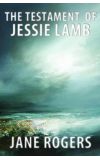
05 May 2012 01:29:29
Published by tiny Scottish independent press Sandstone, Rogers' novel – narrated by a teenager – was longlisted for last year's Man Booker prize but missed out on a shortlist place. Now it has beaten some of the biggest names in science fiction, including China Miéville, Charles Stross, Greg Bear and Sheri S Tepper, to take the 2012 Arthur C Clarke award. Rogers has previously won the Somerset Maugham award and been a runner-up for the Guardian fiction prize, but The Testament of Jessie Lamb is her first venture into science fiction.
"It wasn't an obvious Arthur C Clarke winner – it's not from a science fiction publisher but from a small Scottish press. But I don't think anyone was surprised it was nominated. It really is a very good book and it has found a real audience in the science fiction readership," said the prize's director Tom Hunter. "It offers a route into dealing with quite serious issues, about science, about maternity and about making choices."
Taking place in a world in which a deadly virus, Maternal Death Syndrome, affects all pregnant women, putting the future of the human race in jeopardy, The Testament of Jessie Lamb is the story of one 16-year-old who decides she wants to save humanity. She volunteers for a programme in which she will be injected with an immune embryo, but also put into a coma from which she will not recover. Her parents object, and imprison her.
"It's frighteningly plausible," said Hunter, who compared the novel to Margaret Atwood's The Handmaid's Tale, which won the inaugural Clarke award. "The Handmaid's Tale is set further in the future but there are lots of concerns the two books share."
This year's Clarke prize was marred by criticism from the eminent science fiction author Christopher Priest, who slated the six titles chosen for the shortlist as "dreadful" and called the judges "incompetent". Rogers' novel, he said, was the only worthy one in the lineup.
"Ms Rogers is a successful and intelligent writer from what the SF world calls the 'mainstream'. Her venture into speculative fiction gave her career an unexpected setback, in that none of the trade publishers would accept it. It eventually appeared from Sandstone, a tiny indie publisher based in Dingwall, Ross-shire. It was quickly recognised by many commentators in the SF community as a work of real interest, and to the credit of the judges (the only one they deserve) it has made it to the shortlist," said Priest. "If this alone encourages Ms Rogers to try her hand at more speculative fiction in future then the whole business has been justified. It is not to my mind a wholly achieved novel: it is written with real style, excellent characterisation and a lot of genuine emotion, but to be fully realised as a work of speculative fiction it needs a wider canvas, a sense that larger events are mounting in the background. However, it deserves its place on the Clarke shortlist, and if things go on as they are at present it ought to win."
But Hunter said the judges' decision to award the prize to Rogers was "absolutely nothing to do" with Priest's opinion. "It will look great on the list of former winners – it absolutely makes sense there," he said. "It's a fantastic book [and] a real genuine world-of-mouth success story." Hunter paid tribute to this year's judges, Juliet E McKenna, Martin Lewis, Phil Nanson, Nickianne Moody, Rob Grant and chair Andrew M Butler, for doing "a really good job, which gets harder every year".

